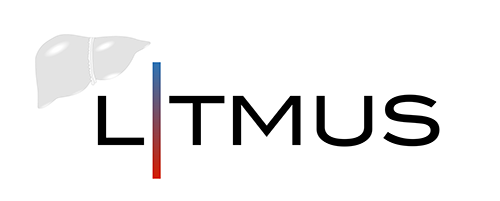After a period spanning more than six years, we have today successfully submitted the initial Qualification Package (QP) to the Food and Drug Administration (FDA). This comprehensive submission includes PRO-C3, ADAPT, and the FAST score, with the context of use ‘Diagnostic Enrichment’. Such an achievement stands as a testament to the collective endeavours of the entire LITMUS consortium, embracing the realms of clinical science, biomarker science, and regulatory initiatives. This submission has been presented to the Center for Drug Evaluation and Research (CDER) as part of the biomarker qualification program, specifically under the Drug Development Tool: Qualification Plan.
The goal of the LITMUS project has been to develop and validate highly accurate blood tests and imaging techniques that will allow doctors and researchers to rapidly and easily diagnose the severity of patients’ disease and monitor changes in patients’ livers for Metabolic dysfunction-associated steatohepatitis (MASH), previously known as non-alcoholic steatohepatitis (NASH).
This submission was done in collaboration with NIMBLE, demonstrating how big consortia can work together to forward science, assist in drug development and help patients.
LITMUS is funded by the European Union’s Innovative Medicines Initiative 2 (IMI2) Joint Undertaking under grant agreement No. 777377. This Joint Undertaking receives support from the European Union’s Horizon 2020 research and innovation programme and EFPIA. LITMUS acknowledges the FNIH NIMBLE Consortium (Non-Invasive Biomarkers Of Metabolic Liver Disease (NIMBLE) for contributing to this work with clinical data from their ultrasound study which is used to assess the repeatability and reproducibility of FAST score. The Foundation for the National Institutes of Health (FNIH) creates and leads alliances and public-private partnerships that advance breakthrough biomedical discoveries and improve the quality of people’s lives.
We sincerely wish to thank all stakeholders and patients that have participated in the European NAFLD (MASLD) Registry, without whom this would not have been possible.
On behalf of all of LITMUS,
The Project Executive team:
- Quentin M. Anstee, Newcastle University
- Carla Yunis, Pfizer Inc.
- Patrick Bossuyt, AMC Amsterdam
- Vlad Ratziu, Institute of Cardiometabolism And Nutrition
- Detlef Schuppan, University Medical Center Mainz
- Jörn M. Schattenberg, University Medical Center Mainz
- Toni Vidal-Puig, University of Cambridge
- Stephen Harrison, University of Oxford
- Morten Asser Karsdal, Nordic Bioscience
- Diana Julie Leeming, Nordic Bioscience
- Maria Manuela Tonini, Integrated Biobank of Luxembourg
- David Wenn, iXscient
- Jeremy Magnanensi, Genfit
- Kevin Duffin, Eli Lilly and Company
- Mette Skalshøi Kjaer, Novo Nordisk
- Richard Torstenson, AstraZeneca
- Clifford Brass, Resolution Therapeutics
Other key people:
- Michael Pavlides, University of Oxford
- Daniel G. K. Rasmussen, Nordic Bioscience
- Neel Ingemann Nissen, Nordic Bioscience
- Céline Fournier-Poizat, Echosens
Key NIMBLE participants:
- Arun Sanyal
- Tania Kamphaus
- Roberto Calle



